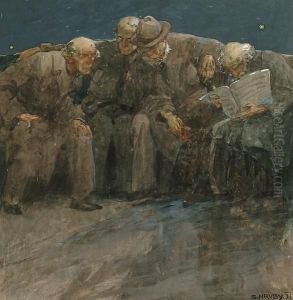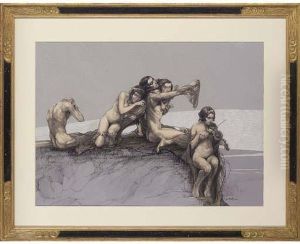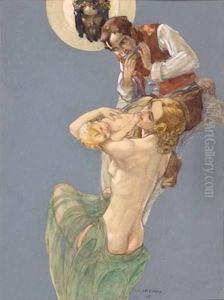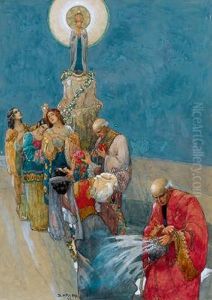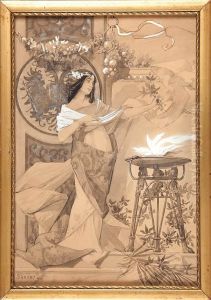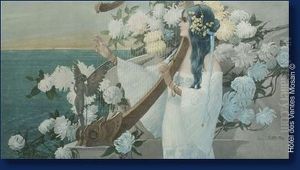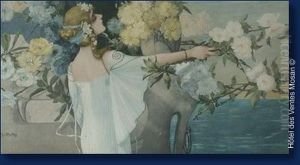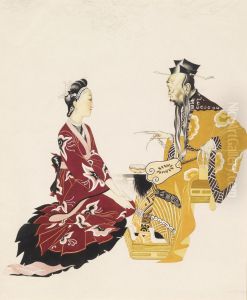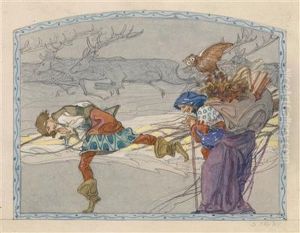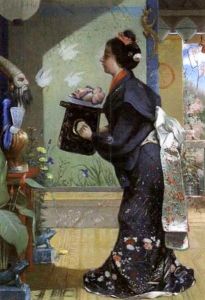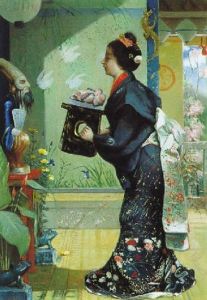Sergius Hruby Paintings
Sergius Hruby was an Austrian painter and graphic artist known for his portraits, genre scenes, and historical paintings. Born on July 17, 1869, in Brünn, which is now Brno in the Czech Republic, Hruby demonstrated an early aptitude for art, which led him to pursue a formal education in the field. He studied at the Academy of Fine Arts in Vienna under the guidance of Christian Griepenkerl, who was known for his academic and historical paintings. Griepenkerl's influence is evident in Hruby's own work, which often featured classical and allegorical subjects rendered with technical precision and a keen eye for detail.
Hruby's career was marked by his versatility, as he was skilled in various mediums, including oil painting, fresco, and illustration. He frequently exhibited his work and received recognition for his artistic prowess. His style was characterized by a blend of academic tradition and the emerging Art Nouveau aesthetic, which was gaining popularity at the turn of the 20th century. Hruby's paintings often depicted elegant figures and were suffused with a sense of romanticism and symbolism.
In addition to his work as an artist, Hruby was also active as a teacher. He shared his knowledge and skills with a new generation of artists, thus contributing to the cultural landscape of Austria and beyond. His work, while perhaps not as widely recognized as some of his contemporaries, provides a glimpse into the artistic transitions of the late 19th and early 20th centuries.
Sergius Hruby's career was inevitably affected by the socio-political upheavals of the early 20th century, including World War I and the subsequent changes that swept across Europe. Despite these challenges, he continued to produce art that reflected both his personal vision and the broader artistic movements of his time. Hruby passed away on November 2, 1943, in Vienna, Austria. His legacy is preserved through his artworks, which continue to be appreciated by art historians and enthusiasts for their contribution to the period's aesthetic developments.
